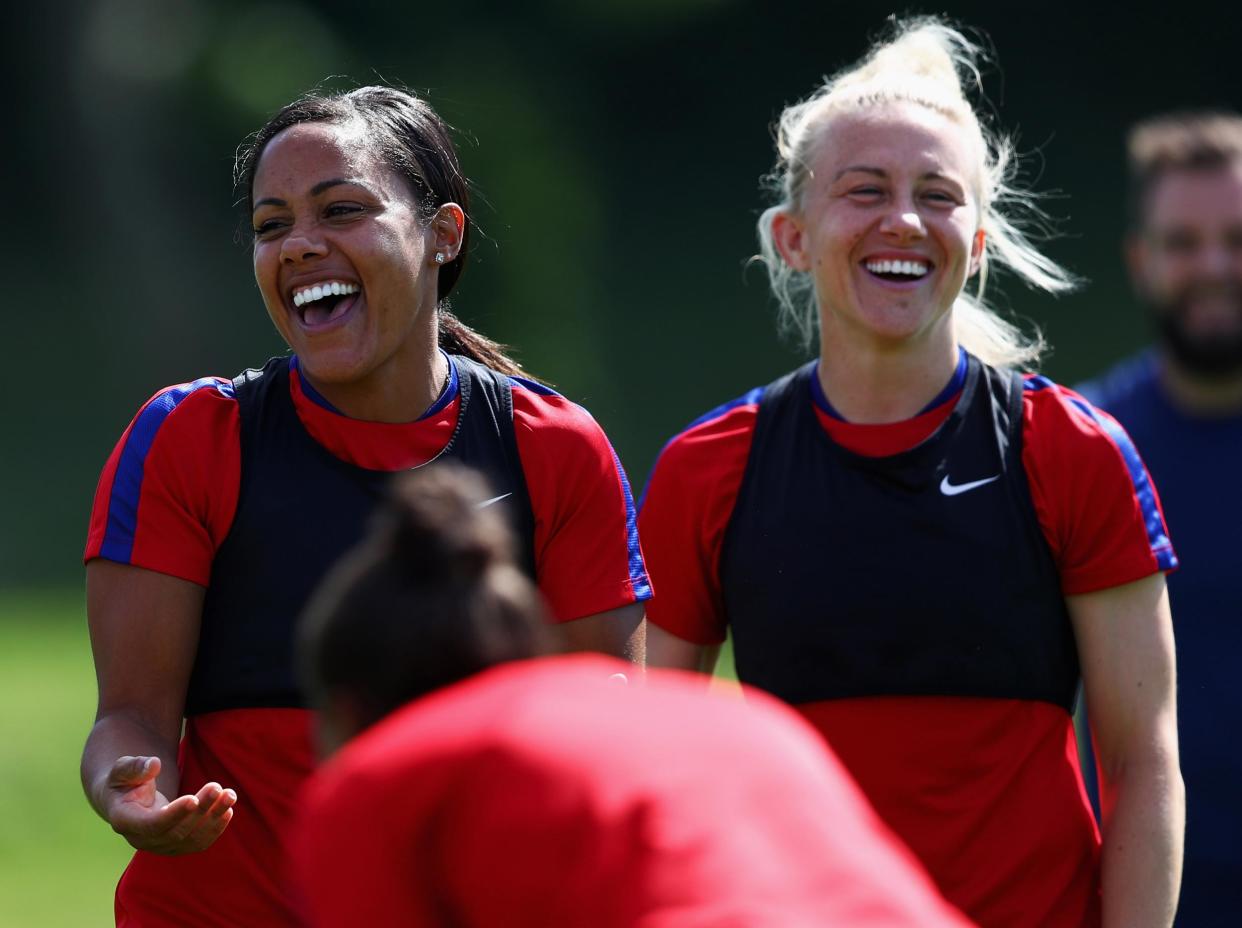The FA's 'Disney princess' campaign won't work – the idea that girls should be princesses is what stops them playing football

This week Disney have announced a three-year partnership with the Football Association, with the promoted goal of encouraging greater participation of girls within the sport. Using the hashtag #DreamBigPrincess, the campaign is asking for people to share their “motivational” images of girls.
But using Disney princesses in a weak attempt to get girls to play football is perverse; it's the very notion that they should aspire to be more princess-like that stops girls from playing sports in the first place.
If the FA had more than one woman on their board perhaps they would know this. The FA has a shameful history of subjugating women's football, as explored last week by Clare Balding, in the Channel 4 documentary When Football Banned Women. In 1921, just after the women's football team pulled in record crowds, the FA banned them from playing in their member grounds due to the sports unsuitability for "a woman's physical frame". The ban wasn't lifted for another 50 years, and it changed the course of women's football forever. Today the women's team is fifth in the world, the men's thirteenth. Despite their success Casey Stoney, the women's captain, earns just £25k a year, compared to the eye-popping £13m her male counterpart rakes in. This disparity is obscene, and as long as it exists the FA, and its attempts to encourage girls to play have zero credibility.
There is a particular mix of social and material barriers which hinder girls participation in sports: pervasive stereotypes, lack of role models, and lack of access are major contributing factors. With the meagre coverage given to women's sport, girls have no concept of football being anything other than a men's game. More girls would play football with the promise that they too could one day have successful sporting careers and be treated with the same esteem afforded to their male counterparts, who incidentally are not expected to go into schools dressed up as princes, since being an athlete is achievement enough. They do not have anywhere close to equal access to training and competitions, rendering it impossible for them to develop their skills to the same standard as men. The social demand for them to be “ladylike” is already so overwhelming, which makes competing in a traditionally male-dominated arena an enormous challenge. Does the FA conceivably believe that further demanding girls align themselves with a stereotypical icon of femininity is going to do anything other than make this situation worse?
Being an athlete, in a sport like football, is not pretty. Leaving it all on the pitch, pushing your body to its limits, and fighting aggressively to win are a far-cry from the characteristics of the composed, aloof and unbearably feminine figure of a princess. Pretending that it is, or could be, is to do girls and the sport a major disservice. Girls know the score; the word and concept of being a princess is regularly used as an insult to put them down, no matter how much you use terms “smashing the stereotype” and “empower”.
We don't need elaborate campaigns and incentives to encourage girls into sport, girls are quietly making progress on their own, despite the huge barriers they face; my daughter is one of them. She stuns me on a regular basis with her quiet determination to keep playing despite being the only girl on the team, despite vicious pushback from the boys, despite ignorant comments from adults labelling her a “tomboy” or lamenting the fact she's not a “girlie girl”. Her coaches tell me she's a talented player, but they do so with trepidation because, by virtue of her female biology, in a few years' time, she won't be allowed to play on the teams anymore.
I don't believe she is the only girl in the UK with this problem. Tiaras and gowns, and empty rhetoric about “strong” characteristics aren't going to help her. If the FA truly wants to nurture my daughters talent, and all the other girls out there in the same position, then there are a myriad of things it could do that don't involve princesses. They could sponsor local girls teams, desegregate the sport, close the gender pay gap, enforce equal sponsorship rules, ensure television rights are sold with an equal representation clause. The inequality in the sport is huge and the list of things that would move towards rectifying it is just as long, without a princess in sight.
One could be forgiven for thinking that this coalition, patronising girls to “dream big princess”, is just another cynical attempt to deny women a seat at the sports table, just when women's sport is beginning to get the recognition it deserves. Being able to play football shouldn't be a dream for girls, it should be a reality, and they should be able to play it without the sexist tropes and stereotypes that plague their everyday lives stopping them. Girls don't need the barriers they face to be decorated with jewels, they need us to lift them.

 Yahoo News
Yahoo News 
